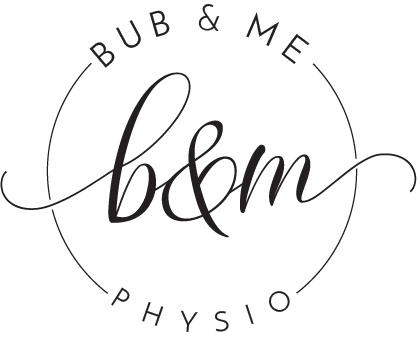Postnatal Aquatic Exercise
How cute is this picture! I love Wednesday mornings in the pool with all the cute babies, and their lovely mamas! Exercise plays a crucial role in your overall health and wellbeing, no matter when you do it, however, appropriate postnatal exercise is especially important to recover and regain strength after birth.
Postnatal exercise classes have a large focus on rebuilding core strength and pelvic floor strength. You need to first regain function in these deep muscles before you can regain your pre-pregnancy strength and function. All our postnatal classes work on this, but today I wanted to talk about the postnatal aquatic classes as they are so unique.
Why Choose Aquatic Classes?
Exercising in water provides a fun, low-impact way to ease back into fitness after childbirth. When you're standing in chest-deep water, the hydrostatic pressure supports about 75% of your body weight, making it much easier on your joints and allowing you to move much more freely than on land. It’s also stimulating and fun for your baby. Most babies enjoy being in the warm water and we get a lot of little hands splashing by the end of term.
The buoyancy and resistance of the water offer several benefits, such as:
Improved Core Strength
This is the foundation of returning to exercise postnatally, helping you regain stability and control.
Pelvic Floor Strengthening
Aquatic exercise is especially beneficial for strengthening your pelvic floor, which is vital for preventing prolapse and reducing bladder leakage.
Enhanced Strength & Cardiovascular Fitness
You can improve your overall strength and fitness without putting excess strain on your joints.
Reduced Postpartum Aches and Pains
The water’s support helps alleviate common discomforts experienced after childbirth.
Better Sleep
Many women find that regular hydrotherapy helps improve their sleep quality and their baby’s sleep after class!
Mental Health Benefits
Hydrotherapy can help combat feelings of stress or baby blues, promoting relaxation and overall emotional wellbeing.
No Swimming Skills Needed!
You don’t even need to be able to swim to benefit from postnatal aquatic exercise! Whether you're new to water exercise or just looking for a gentle, supportive way to get back into fitness, aquatic classes can be an excellent choice.
Why Attend a Physio-led Class?
Your journey to regaining strength after childbirth can be influenced by a number of factors:
Your fitness and strength during pregnancy
The type of birth experience you had, which impacts the recovery of your pelvic floor and abdominal muscles
Any pelvic floor dysfunction or pain
Existing musculoskeletal injuries
Your overall energy levels
Attending a class under the guidance of a physiotherapist means that exercises can be adjusted depending on your journey and your recovery.
When Can You Start?
While recovering from pregnancy and birth takes time, aquatic exercise offers a gentle and effective way to begin rebuilding strength, especially when combined with guidance from a physiotherapist. In fact, most women can safely start postnatal aquatic classes as early as 6 weeks after birth, once you have your 6-week postnatal check with your GP/OB.
Before starting any exercise program, it’s always a good idea to see a pelvic floor or women’s health physiotherapist for your 6-week postnatal consultation. During this visit, your pelvic floor will be assessed, and you'll receive a tailored postnatal strengthening plan designed specifically for you.
References:
1. The Royal Australian New Zealand College of Obstetricians and Gynaecologists (RANZCOG). Exercise During Pregnancy. 2016. Report No: C-Obs-62. https://ranzcog.edu.au (Accessed Jan 2025).
2. Royal Australian and New Zealand College of Obstetricians and Gynaecologists. (n.d.). First few weeks following birth. https://ranzcog.edu.au/wp-content/uploads/First-Few-Weeks-Following-Birth.pdf
3. Pelvic, Obstetric and Gynaecological Physiotherapy. (2018). Aquanatal guidelines: Guidance on antenatal and postnatal exercises in water. https://thepogp.co.uk/_userfiles/pages/files/POGP-Aquanatal%20(UL).pdf
4. ACOG Committee Opinion No. 804. (2020). Physical Activity and Exercise During Pregnancy and the Postpartum Period. American College of Obstetricians and Gynecologists.



